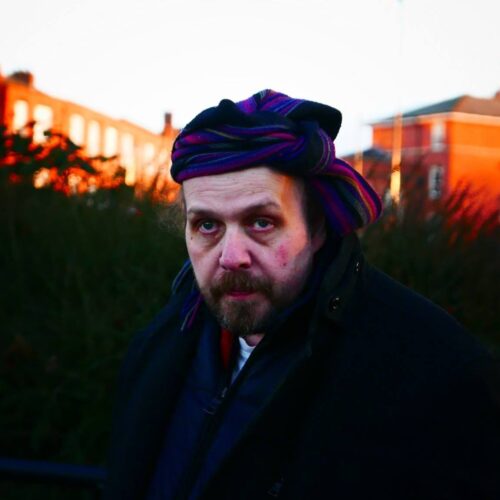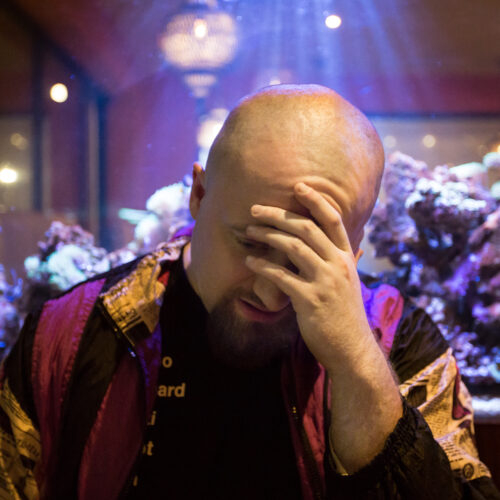
Opera out of the box
A few weeks ago I had the pleasure of being part of Out of the Box, a weekend of small-scale site-specific opera that is part of Sound 2012, North East Scotland’s Festival of New Music. Alex Reedijk, Scottish Opera’s General Director, concluded a panel discussion at the end of the weekend with the observation that the future of opera lies in shorter productions as new audiences are more likely to try out something new when it is not a sit of several hours. A recent survey by Tete-a-Tete: The Opera Festival for Arts Council England shows that there are around 200 opera companies in England, mostly outwith the subsidised sector. One in five of their productions are 21st century works. One can now genuinely say that opera is as vibrant as ever.
Yet, opera seems to have unleashed itself from conventions and out of the box productions are becoming increasingly common. For example, I recently heard Vicky Featherstone, Artistic Director of The National Theatre of Scotland explain how her organisation had performed within a 20 mile radius from most of Scotland’s population. In order to bring theatre to people, the theatre had performed in village halls, pubs, car parks. Opera has taken inspiration from site specific theatre. Site specific opera lets concrete settings inspire the drama, and performs in situ by making the site the stage. If anything, the opera weekend of Sound 2012 revealed that site-specific opera plays around with many of our expectations of what opera is and should be.
In Out of the Box, operas were performed in pubs, hotel rooms, stables, on a bus and in a lighthouse. Many of the spaces were small and performers were physically close to the audience. In many cases the audience were even an essential element in the production. The Sloan’s Project by composer Gareth Williams and librettist David Brock, was an opera that took place in a pub. The acts took place in different parts of the pub, and in one act I was that close to the singer that I had to be careful not let her trip over my feet when she moved around the piano. This being a pub scene, the audience gathered around tables or hang about at the bar. The audience was surrounding – even mingling with– the performers from all sides. The audience had become pub-goers and thereby part of the staging of the opera production. Being within reach of the performers meant that their facial expressions, gestures and movements were watched closely, and from all sides.

To me there was one opera that epitomised site-specific opera in all its facets: Faustus by composer Stephen Deazley and librettist Martin Riley. At one moment during the bus tour the bus stopped alongside a woodland. From between the trees a rather tatty looking man emerged, cello in hand (actor, baritone and cellist Matthew Sharp). The bus driver opened the door for him after which the man greeted us passengers with an aria before telling his story whilst the bus continued its journey. In a rather confused state of mind the man gave away his cello, bow, his wallet and passport, and his jumper before jumping off the bus and walking away in the fading afternoon light into another woodland. Whereas in grand opera the start and conclusion of an opera is marked by the opening and closure of the curtains, Faustus, like many of the other operas in Out of the Box, had fluid openings and endings. Applause at the end of performances were fluid as the audience wasn’t sure when the opera had actually finished. Faustus ended with the librettist (who nobody expected to be part of the plot) running behind the tatty looking man, putting his long black coat over the performer’s shoulders and walking off into the fading afternoon light next to him. The conclusion of this opera was a strong image, an eerie silence in the bus, and no one to hear the applause as the performer was outwith hearing distance.
There was a real buzz around the opera-weekend with audience members actively discussing the merits of the site-specific operas performed. Opera is as vibrant as it has ever been, be it out of the box. It is up to us composers to engage with it.






This sounds absolutely amazing! My own experience of situated theatre was in the former coffin fittings factory in Birmingham, by a company called ‘Tin Box Theatre’. It was thoroughly engaging, and one scene was made up of one-to-one dialogues between cast members and each of the very small audience. I can imagine opera could work brilliantly like this too! Where is the next one?
I love productions out of the theatre. Over here we have an ad on TV where opera singers are singing about insurance but look like regular strap hangers- it is a powerful ad!
On a higher level, Shakespeare is performed here every summer in the park, with the audience following them around as they utilize different areas of the Park My all time favorite was a production of Alice in Wonderland on the grounds of South Hill Park Arts Centre in Bracknell, Berkshire. They used the lake, the grounds and the mansion house – to this day I can still see Alice grown as tall as that house! Rather than being just a story, Alice in Wonderland joined the real world for a while and these productions opened literature, theatre and music to people who might not have been exposed to it otherwise.
Dear Catherine and Tanya,
Thank you for your comments. Opera indeed seems to follow what has been done in theatre for several decades – site-specific productions. I use ideas from site-specific opera in my community music work and hope to write a small-scale site-specific piece for my level 3 music composition course, so all examples are welcome!
Cheers,
Petra